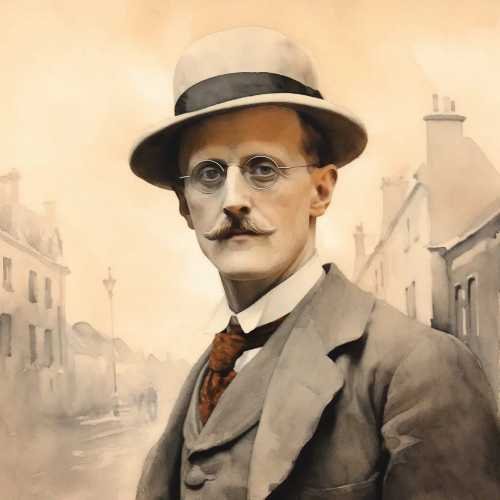
I'm James Joyce
James Augustine Aloysius Joyce (2 February 1882 – 13 January 1941) was an Irish novelist, poet and literary critic. He contributed to the modernist avant-garde movement and is regarded as one of the most influential and important writers of the 20th century. Joyce’s novel Ulysses (1922) is a landmark in which the episodes of Homer’s Odyssey are paralleled in a variety of literary styles, particularly stream of consciousness. Other well-known works are the short-story collection Dubliners (1914), and the novels A Portrait of the Artist as a Young Man (1916) and Finnegans Wake (1939). His other writings include three books of poetry, a play, letters, and occasional journalism.
Joyce was born in Dublin into a middle-class family. He attended the Jesuit Clongowes Wood College in County Kildare, then, briefly, the Christian Brothers–run O’Connell School. Despite the chaotic family life imposed by his father’s unpredictable finances, he excelled at the Jesuit Belvedere College and graduated from University College Dublin in 1902. In 1904, he met his future wife, Nora Barnacle, and they moved to mainland Europe. He briefly worked in Pula and then moved to Trieste in Austria-Hungary, working as an English instructor. Except for an eight-month stay in Rome working as a correspondence clerk and three visits to Dublin, Joyce resided there until 1915. In Trieste, he published his book of poems Chamber Music and his short story collection Dubliners, and he began serially publishing A Portrait of the Artist as a Young Man in the English magazine The Egoist. During most of World War I, Joyce lived in Zürich, Switzerland, and worked on Ulysses. After the war, he briefly returned to Trieste and then moved to Paris in 1920, which became his primary residence until 1940.



